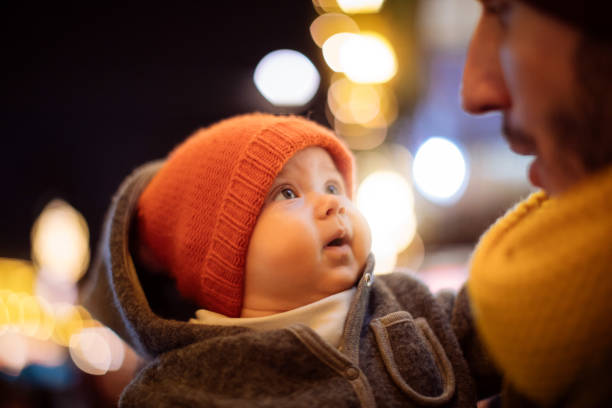A lot of parents and guardians are unaware that early signs of autism can often go unnoticed to the inexperienced eye.
Why does this happen? Children who achieve the usual milestones such as sitting, crawling, and walking on time, end up having their less apparent differences go unnoticed. Some examples of less apparent differences are the development of body gestures, pretend play, and social language.
How can we be more careful? Let’s look at some of the early identifiable signs of Autism in children.
Autism Signs By 3 Months

- The baby doesn’t respond to loud noises
- The baby doesn’t grasp or hold objects
- The baby doesn’t smile at people
- The baby doesn’t babble or utter random sounds
- The baby ignores new faces
- The baby shows interest in a stationary object rather than following a moving person, such as their parent
Autism Signs By 7 Months

- The baby doesn’t turn her head to try and locate sounds
- Shows no affection towards parents
- Doesn’t laugh or make squealing sounds
- Doesn’t reach for objects
- Doesn’t smile on her own
- Doesn’t try to attract attention
- Doesn’t show interest in games like peekaboo or wheels on the bus
Autism Signs By 12 Months

- Doesn’t crawl or stand when supported
- Doesn’t say single words.
- Doesn’t use gestures like waving or shaking his or her head.
- Doesn’t point to objects or pictures.
- Doesn’t turn their head when they hear their name.
- Doesn’t turn to look, even after their name is repeated several times, but will respond to other sounds
Autism Signs by 18 Months
- A child with delayed speech skills will point, gesture, or use facial expressions to make up for their lack of talking.
- A child with ASD might make no attempt to compensate for delayed speech or might limit speech to repeating what they hear on TV or what they just heard.
Autism Signs by 24 Months

- A child with typical development brings a picture to show their mother and shares their joy from it with her.
- A child with ASD might bring their mom bottle of bubbles to open, but they do not look at her face when they do or share in the pleasure of playing together.
- Play with toys in an extremely unusual manner
- Doesn’t show much enthusiasm to explore new things or appear underactive
- Seem overly fussy or be difficult to soothe
The following delays warrant an immediate evaluation by your child’s paediatrician:
- By 6 months: No big smiles or other warm, joyful expressions.
- By 9 months: No back-and-forth sharing of sounds, smiles, or other facial expressions.
- By 12 months: Lack of response to name.
- By 12 months: No babbling or “baby talk.”
- By 12 months: No back-and-forth gestures, such as pointing, showing, reaching, or waving.
- By 16 months: No spoken words.
- By 24 months: No meaningful two-word phrases that don’t involve imitating or repeating.

